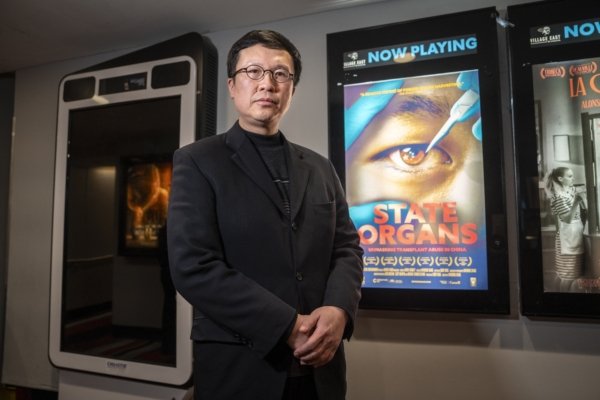On November 21, 2024, during an interview in New York, a documentary filmmaker named Zhang Yongjin revealed a shocking story about a 17-year-old soldier in the army who was involuntarily used as a organ donor. The young soldier, who came from a rural background, was sent to the military camp by his parents in hopes of securing a better future for him. However, due to a conflict with a commanding officer, he was imprisoned in the camp, where the decision was made to kill him and harvest his organs, including two kidneys and an eye.
Director Zhang Yongjin shared during a premiere event in Manhattan on November 9, that the soldier’s blood type matched that of a military officer, leading to the decision to use him as a donor in a secret military operation. This shocking revelation pointed towards a larger scheme orchestrated at the national level.
Among the interviewed individuals in the documentary was Dr. Zheng Zhi, a witness to the forced organ harvesting practices by the Chinese military. Dr. Zheng disclosed the horrifying experiences he endured and expressed a sense of relief and redemption after sharing his story in the documentary.
Zhang continued to reflect on the impact of the documentary, emphasizing the need to distance oneself from the cultural influences of the Chinese Communist Party (CCP). He confessed that as a product of a military family in mainland China, he was initially unaware of the depth of these influences but gradually awakened to the need to shed these party ideologies.
By delving into this process, Zhang discovered a journey towards personal salvation and a strengthening of his faith. He highlighted the importance of breaking away from the CCP’s cultural grip to attain genuine safety and inner peace.
Addressing the potential threats faced as a producer of such a revealing documentary, Zhang acknowledged the risks but emphasized the importance of standing against the tyranny of the CCP. His commitment to shedding the party’s cultural influence and embracing a path towards spiritual growth resonated with his audience.
Zhang suggested engaging with critical literature such as “Nine Commentaries” to deepen the understanding of the CCP’s oppressive tactics and the necessity to disentangle oneself from its grip. He underscored the transformative power of artistic expression as a means of conveying truth and righteousness, inviting viewers to benefit from the positive energy generated by genuine creations.
The significance of distancing oneself from the CCP’s influence and seeking guidance from divine principles was a central theme in Zhang’s discourse. By sharing his personal journey of shedding party culture and embracing a spiritual awakening, Zhang aimed to inspire others to seek similar enlightenment for their own well-being.
As the film made its debut in North America, Zhang encouraged viewers to explore the profound message of the film and its relevance to their lives. He expressed optimism for a seismic shift in awareness about the true nature of the CCP, leading to a collective rejection of its oppressive regime.
Drawing parallels from the Chinese classic “Journey to the West”, Zhang recounted a fable to emphasize the importance of unveiling the true face of the CCP to prompt societal awakening and eventual liberation from its grasp.
In his closing remarks, Zhang reiterated his deep-rooted love for the Chinese land and its people, expressing a sincere desire for the well-being and happiness of mainland Chinese citizens. His filmmaking endeavors were fueled by a genuine wish to shed light on the atrocities perpetuated by the CCP and pave the way for a safer and more fulfilling life for all.

